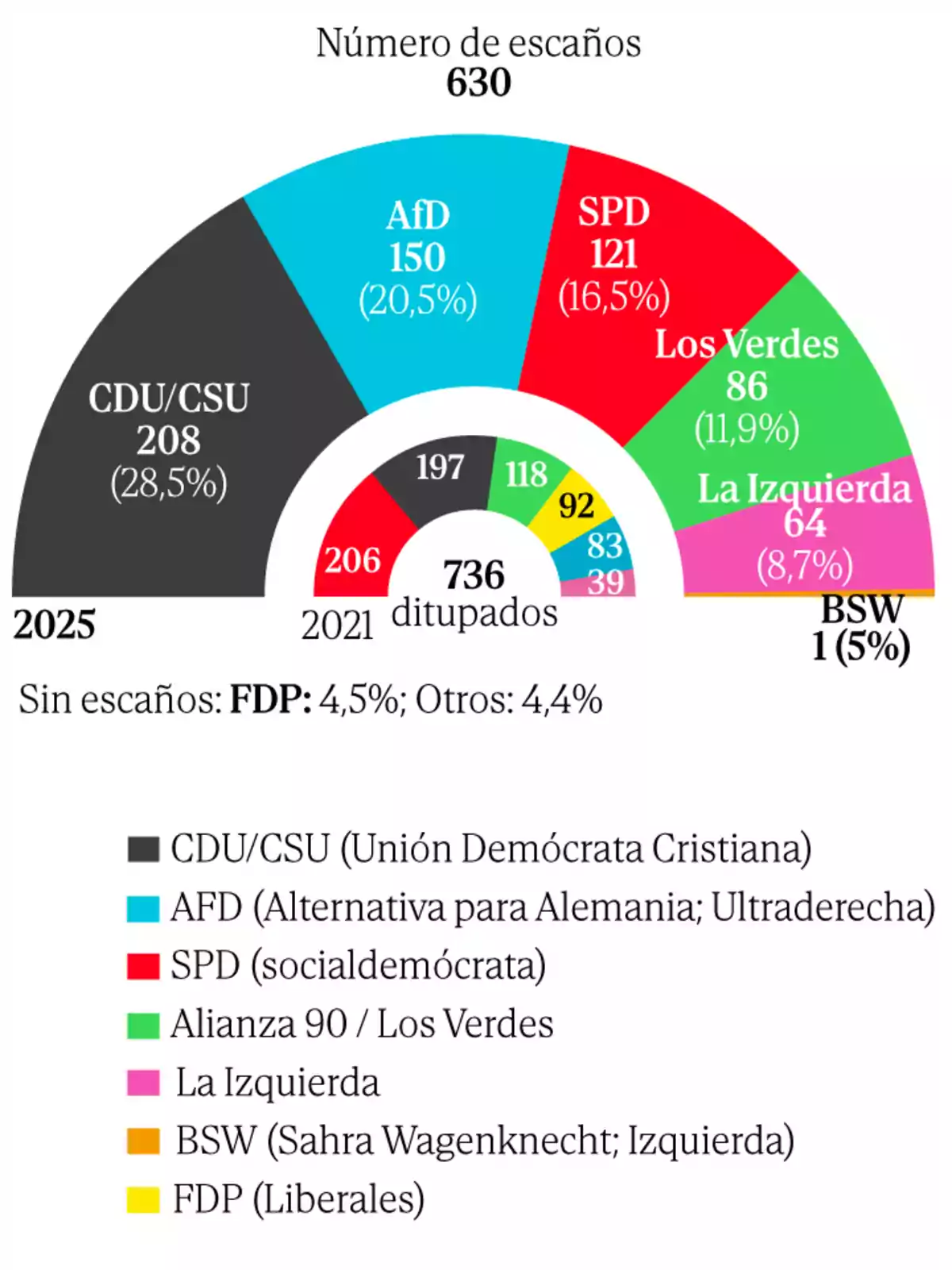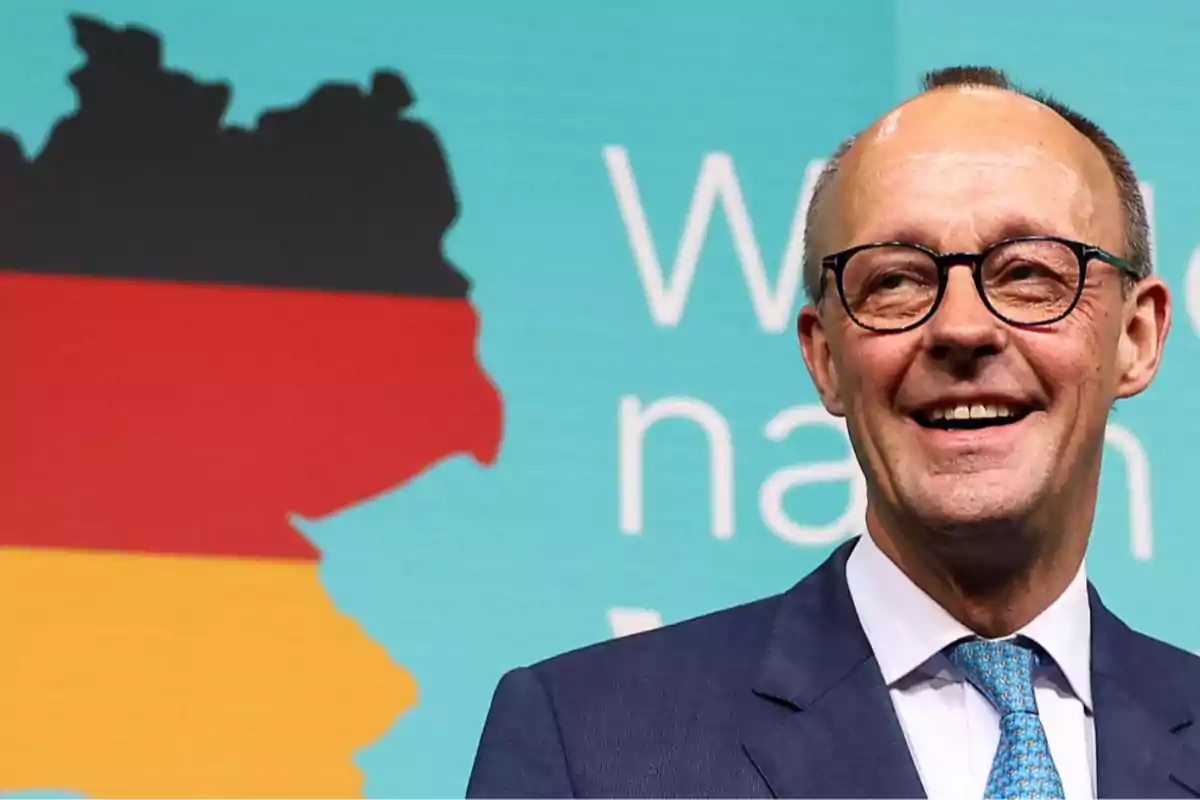
This Is Cdu's Leader, Virtual Successor to Scholz After Germany's Elections
In 2021 he returned to the political forefront after Merkel's departure
The conjunction of the Christian Democratic Union (CDU) and its allied party in Bavaria, the Christian Social Union (CSU), champions a title: "Policy Change for Germany".
Under the leadership of Friedrich Merz, the CDU/CSU regains power after having been the main opposition force in the last legislature. Forming a government won't be an easy task but, unlike in Spain, the option of repeating elections is not on the table in Germany. Their political proposal is based on conservative, liberal, and social Christian values.
Merz, born in 1955 in Brilon, North Rhine-Westphalia, is a lawyer by profession and joined the CDU in 1972. Since 2022, he has led the parliamentary group composed of the CDU and the CSU and currently leads the opposition.

His trajectory in Parliament began in 1994 and extended until 2009. It was then that he decided not to run for re-election due to his differences with Angela Merkel. However, in 2021, after Merkel's retirement from politics, Merz returned to the forefront.
His profile is defined by a liberal approach to the economy and a conservative stance on social issues. Polls already indicated that he was the candidate with the most options to assume the German Chancellery.
In the party's agenda, migration policy has taken a central role in this electoral campaign. The CDU/CSU is committed to restricting illegal immigration and promises to streamline asylum and deportation processes.

Merz's support for two resolutions and a bill aimed at reducing irregular immigration, with the support of Alternative for Germany (AfD), has caused strong controversy. Among those who criticize him is Angela Merkel herself, with whom he has maintained a tense relationship.
The first confrontation between the two leaders occurred in 2002 when they contested the joint CDU and CSU candidacy for the general elections. After those elections, Merkel claimed the leadership of the parliamentary group for herself, relegating Merz to a secondary role.
The distance between them deepened when Merkel assumed the Chancellery in 2005, heading a grand coalition with the Social Democratic Party (SPD). The collaboration with the socialists prevented the implementation of many of the conservative policies that Merz advocated, and he considered the concessions made to the SPD excessive.
Merz's Proposals
Merz, at the head of the center-right bloc, focuses his strategy on strengthening the economy. His plan includes reducing the corporate tax to 25% to favor businesses.
In the social sphere, he proposes reviewing and possibly decreasing some aid, as well as alleviating the tax burden on the middle class. He also advocates for a significant increase in the Defense budget.
More posts: